Orbán’s government tried to hide sensitive information on €1.5B Chinese university project
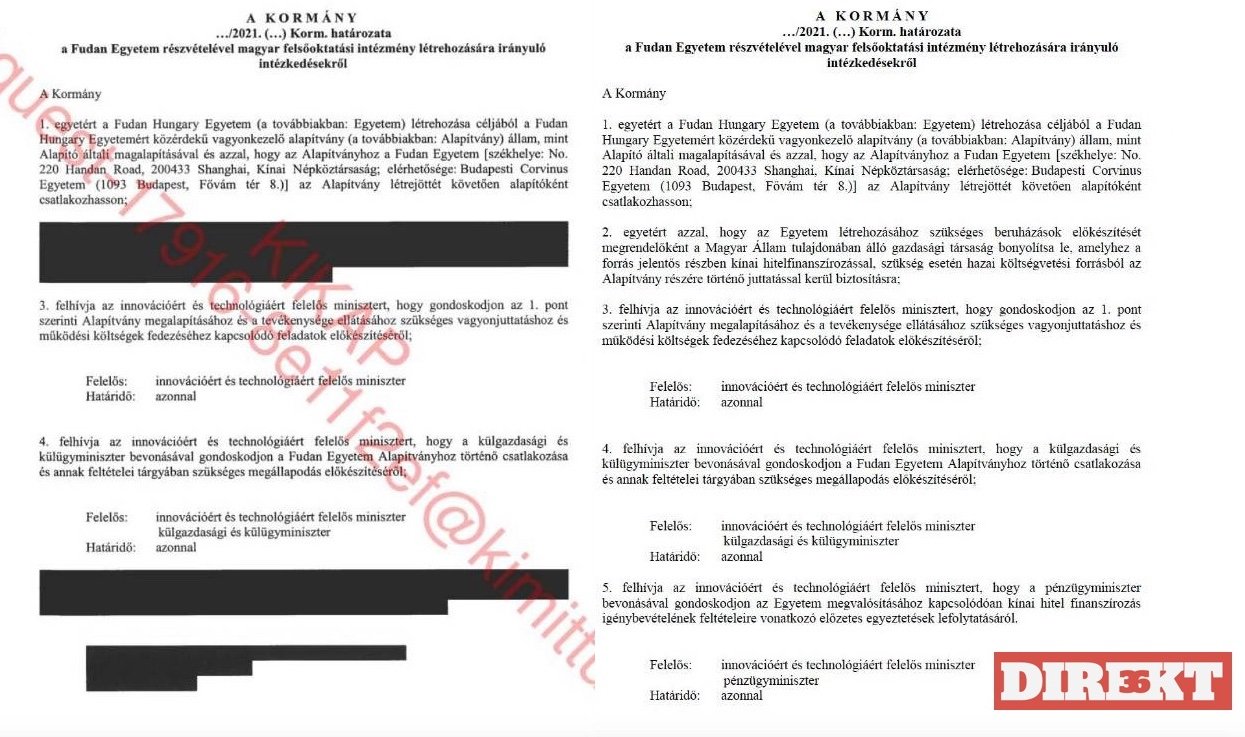
Although Prime Minister Viktor Orbán’s government published its plans for the taxpayer funded Fudan Hungary University, it censored all politically sensitive and explosive information from the documents, Direkt36 has found.
Direkt36 has uncovered the government’s Fudan project back in April. The reporting was based on internal documents, including a ministry draft proposal accepted at the Orbán government’s cabinet meeting on 24 February. The article revealed that the Hungarian government wants to contract a Chinese state company for the construction of the Budapest campus of Shanghai’s Fudan University, which is expected to be one of the largest investments in Hungarian higher education in recent decades. According to the ministry proposal, estimated by the government at €1.5B (HUF 540 billion), would utilize largely Chinese building materials, Chinese labor, and would mostly be financed through a Chinese loan, which Hungary would pay for.
Following the publication of the article, Hungarian opposition criticized the Fudan project by claiming that the government would expose the country to China’s economic and political interests as well as indebt Hungary. The government responded to these allegetions, among other things, by saying that nothing had been decided yet, and no loan or contract had yet been agreed with anyone.
Back in April, Mayor of Budapest Gergely Karácsony filed a freedom of information request and asked for government decisions on the construction of the Chinese university. Three months later, in mid-July, the Prime Minister’s Office sent him some of the requested documents, however, they retracted certain information by obscuring several paragraphs and even full pages.
Karácsony received the same documents censored as the ones Direkt36 has previously obtained. Comparing the two versions, it is easy to identify what information the government considered too sensitive. One was the name of some of the people working on the proposal at the Ministry of Innovation and Technology (ITM). Also, any passage that clearly indicated that the government definitely wants to finance the investment through a Chinese loan, in addition, has already started preparing the construction of the project with a Chinese company.
These retracted parts also refute the claims of Minister László Palkovics, head of ITM, who, for example, has repeatedly denied in recent months that they would borrow the many hundreds of billions of forints needed for construction from China alone.
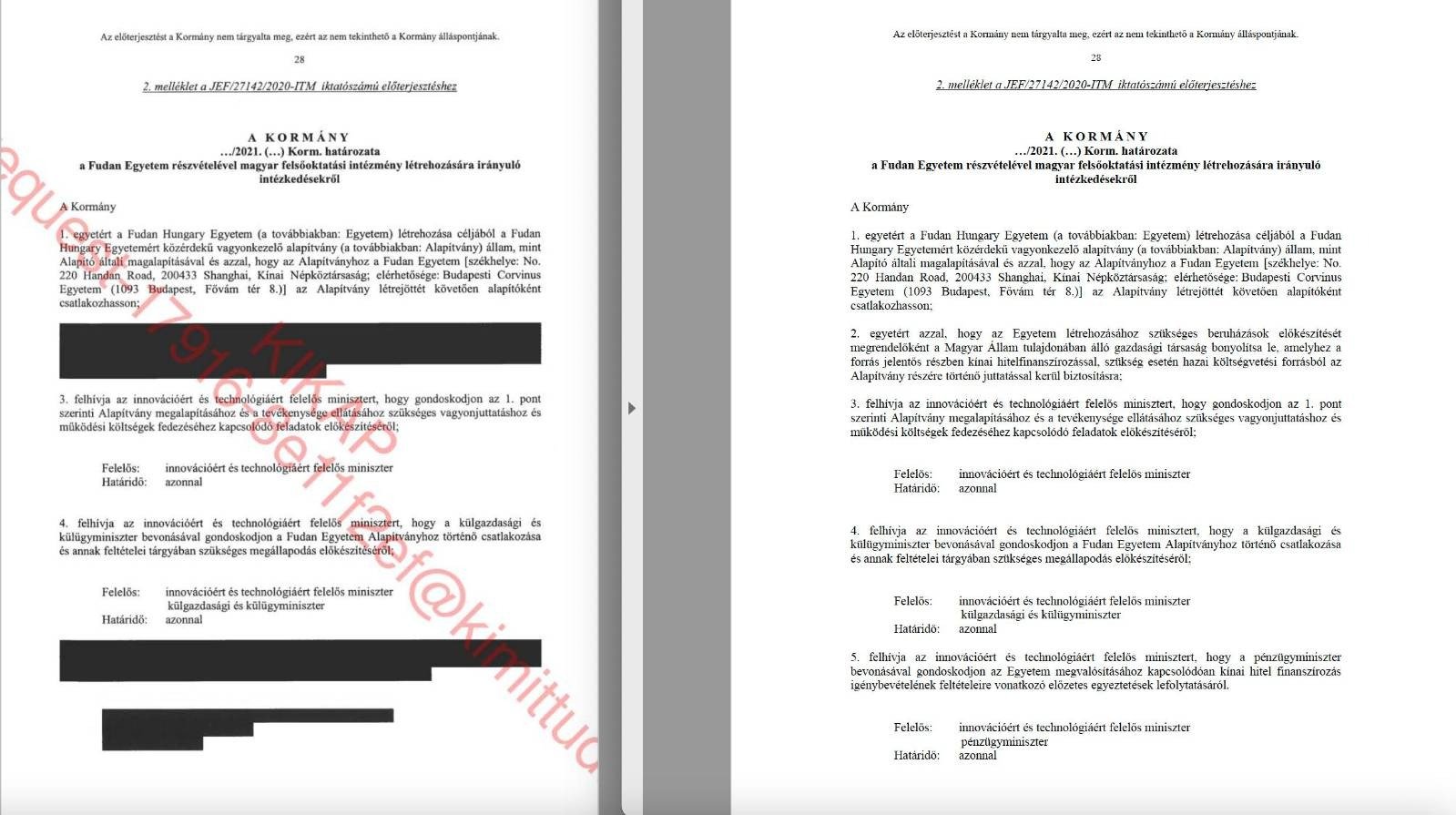
“We have received offers from Chinese banks as well as other banks and companies,” the minister told Index at the end of April. Later, in an interview with the Ferencváros district newspaper, he claimed that “we will ask for offers from European banks, and the EBRD, for example, is typically suited for this”.
In fact, Palkovics’s own proposal details, through paragraphs, that “for the implementation of the investment, China Development Bank can provide a loan of 80% of the investment amount on favorable terms” and then describes the specific preliminary loan offer through the very pages of the proposal. All other mentions of the Chinese loan were also omitted from the version sent to the mayor.
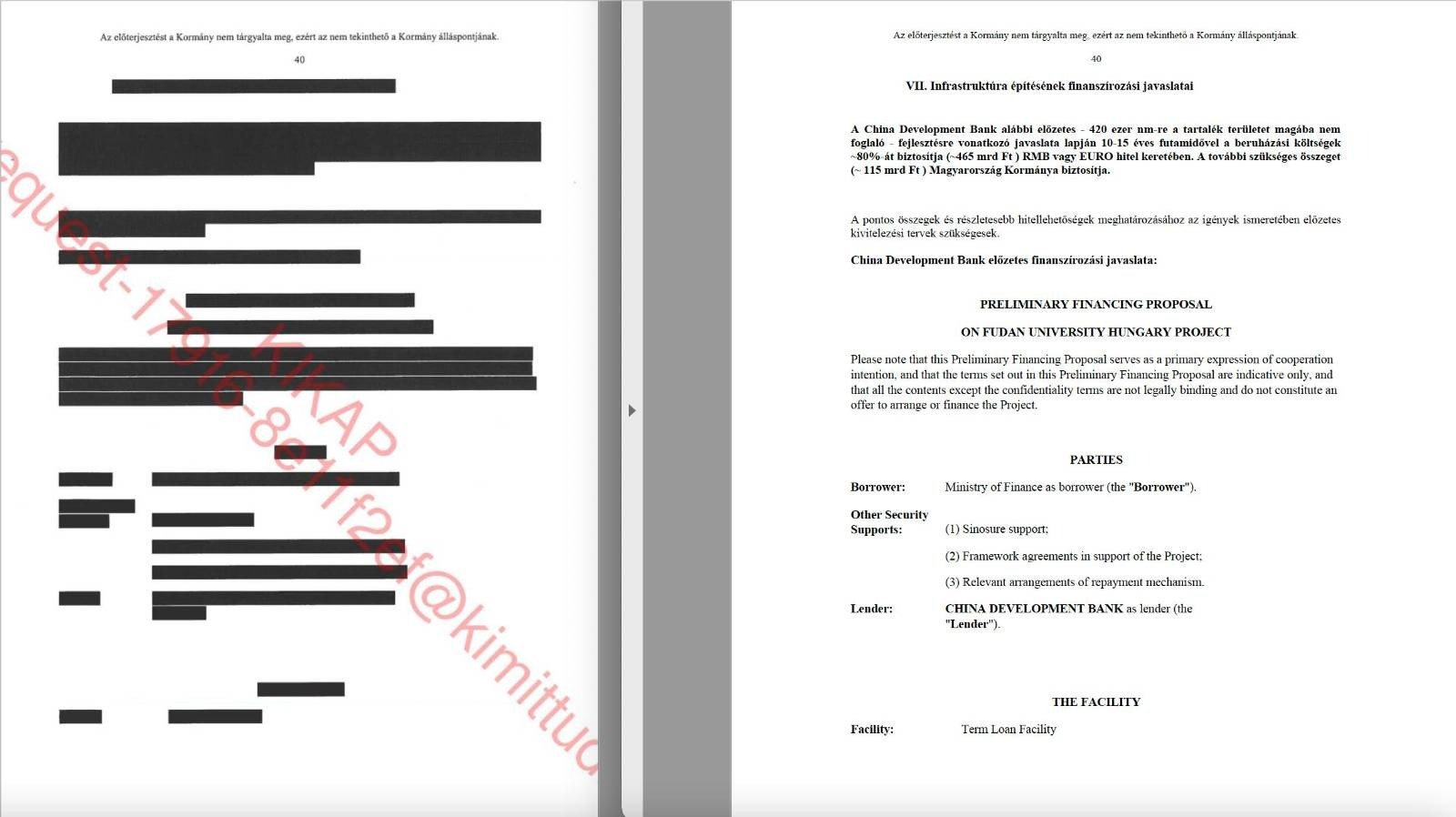
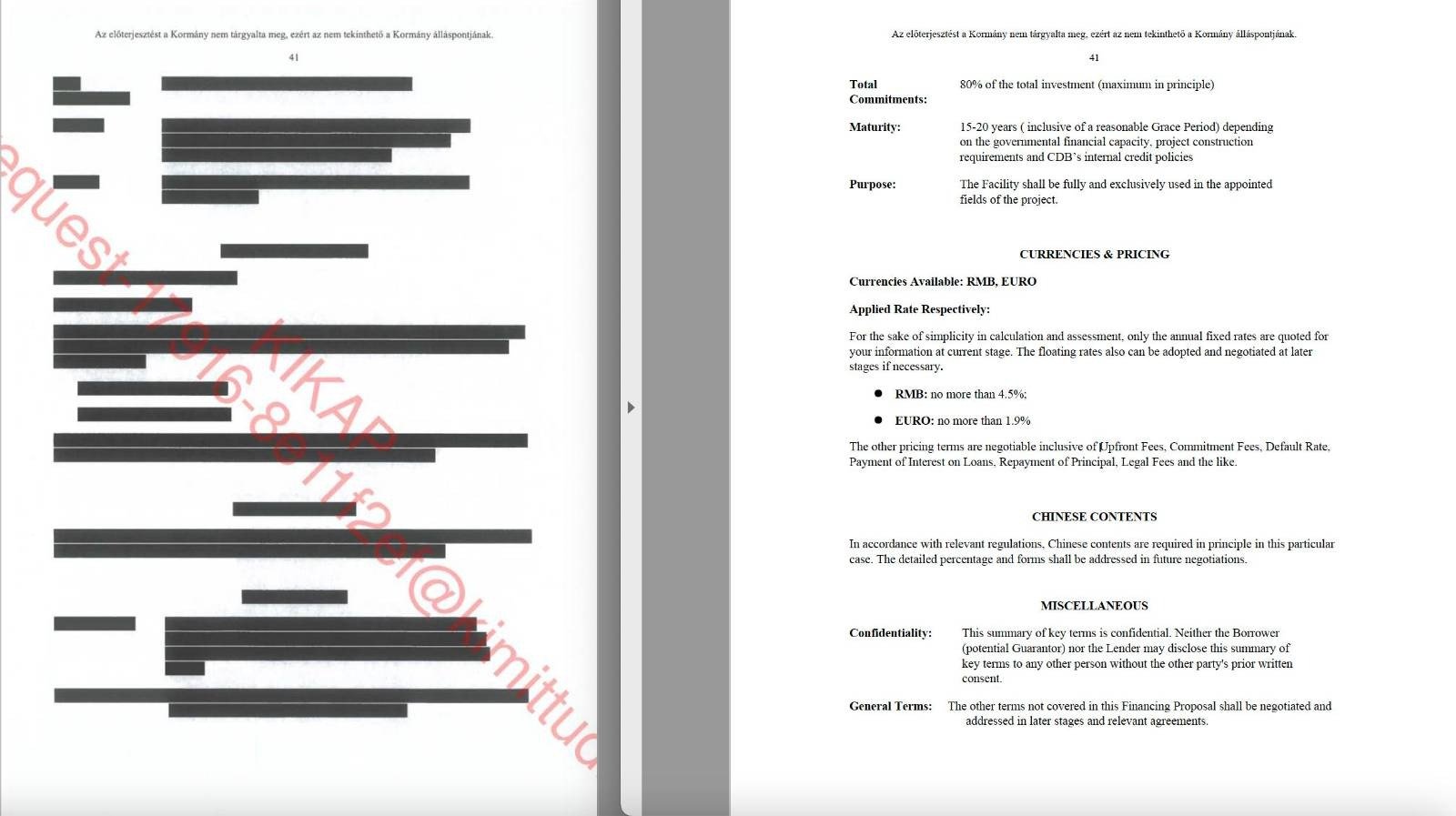
The Prime Minister’s Office has censored not only sections referring to Chinese financing, but also the paragraphs dealing with Chinese construction. These include, for example, the bid of the Chinese State Engineering Construction Company, which would erect the campus for a little less than €1B (HUF 338 billion), which is cheaper than the Hungarian government’s €1.5B (HUF 540 billion) estimate (Direkt36 has already detailed these offers in a previous article).
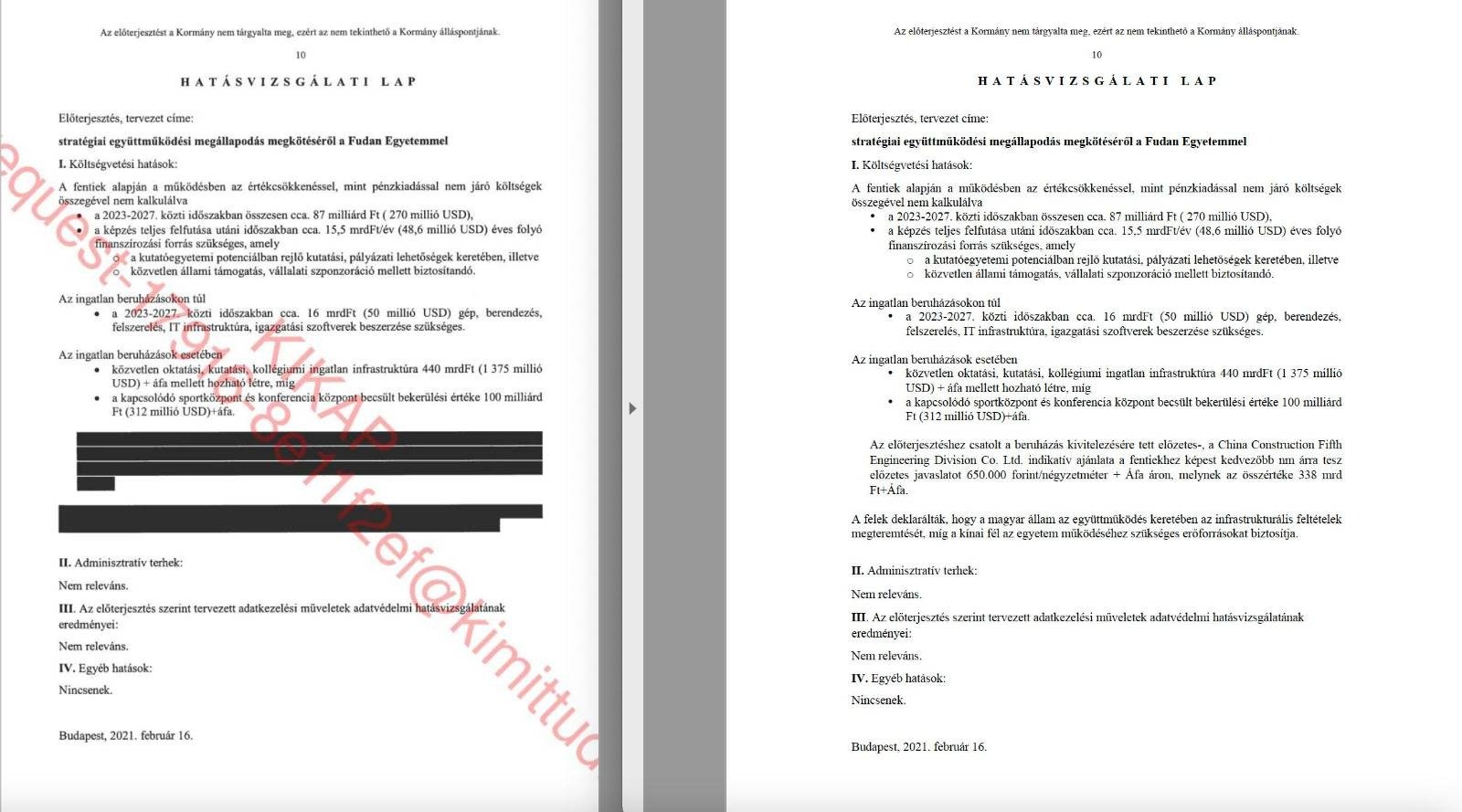
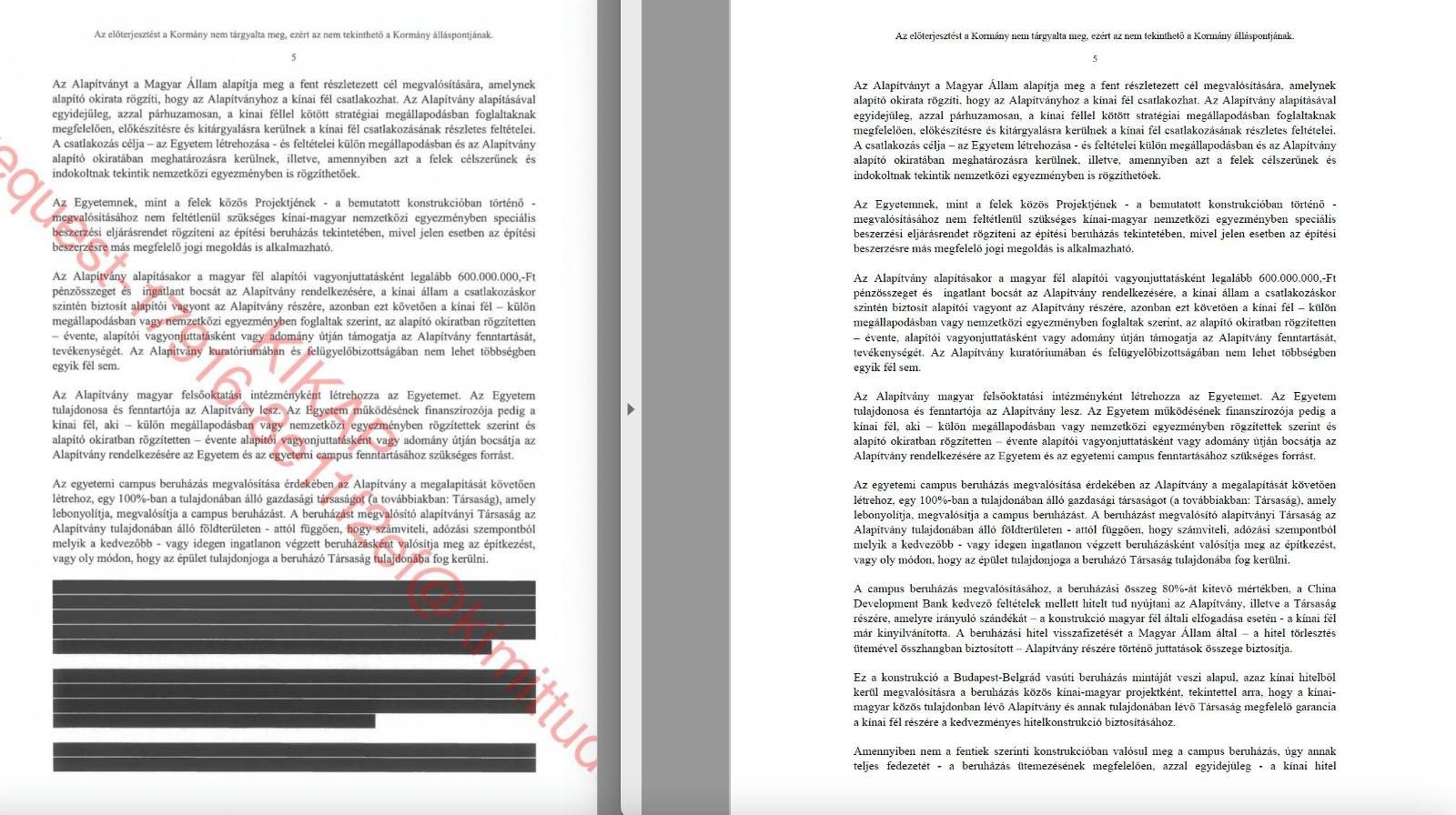
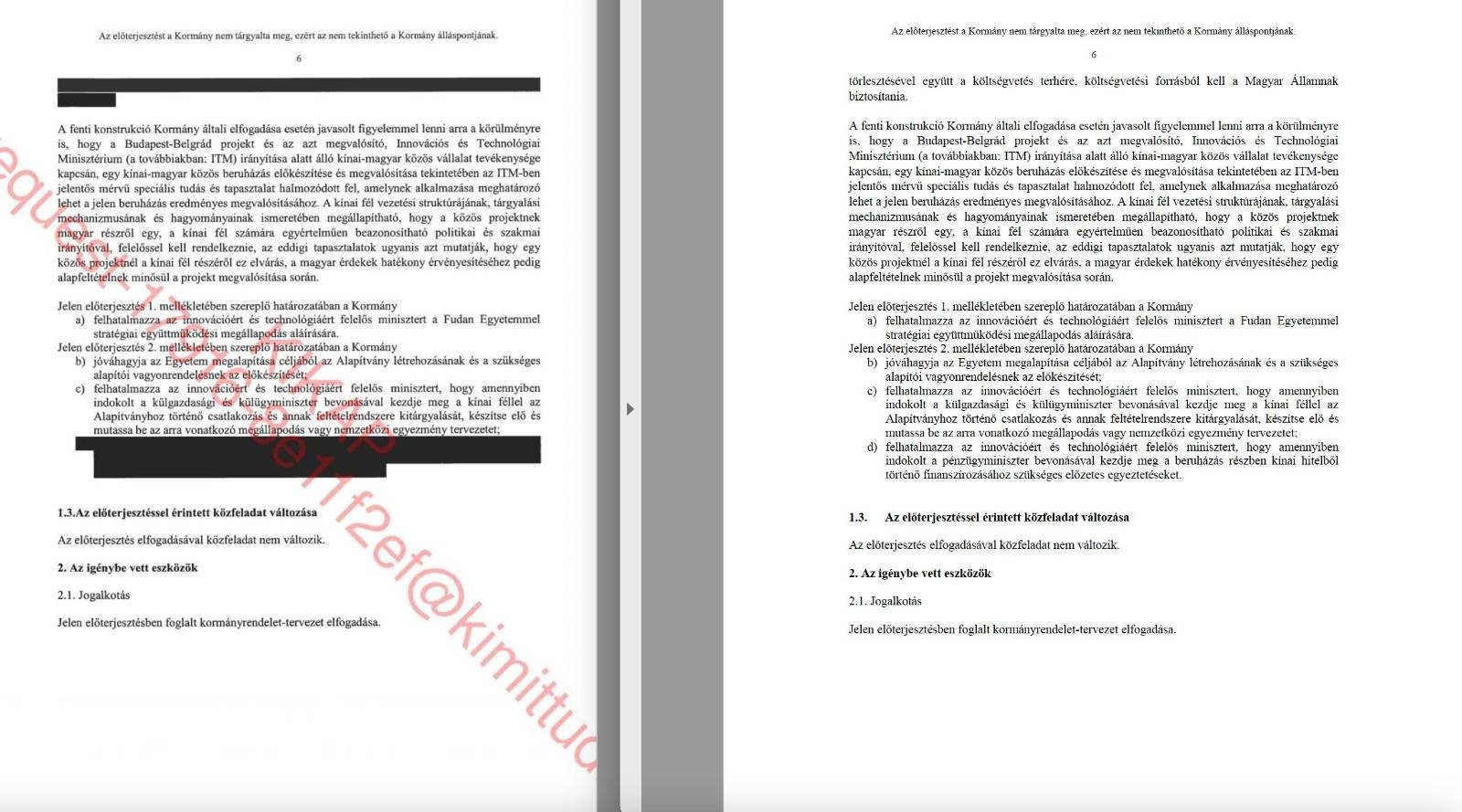
The government’s justification for the censorship was that “obscured data are business secret and (…) they serve as a basis for further decision-making”. According to Karácsony, however, “they don’t want to disclose the censored parts to Hungarians, while the Chinese obviously know all the details. They want to indebt the country behind our back, they want to secretly serve Chinese influence instead of the Hungarian youth,” the mayor wrote on his Facebook page.
In a reply to Direkt36, the Municipality of Budapest said that, in addition to the censored parts, the government did not even formally comply with the freedom of information request, hence Karácsony turns to the Hungarian National Authority for Data Protection and Freedom of Information (NAIH).

